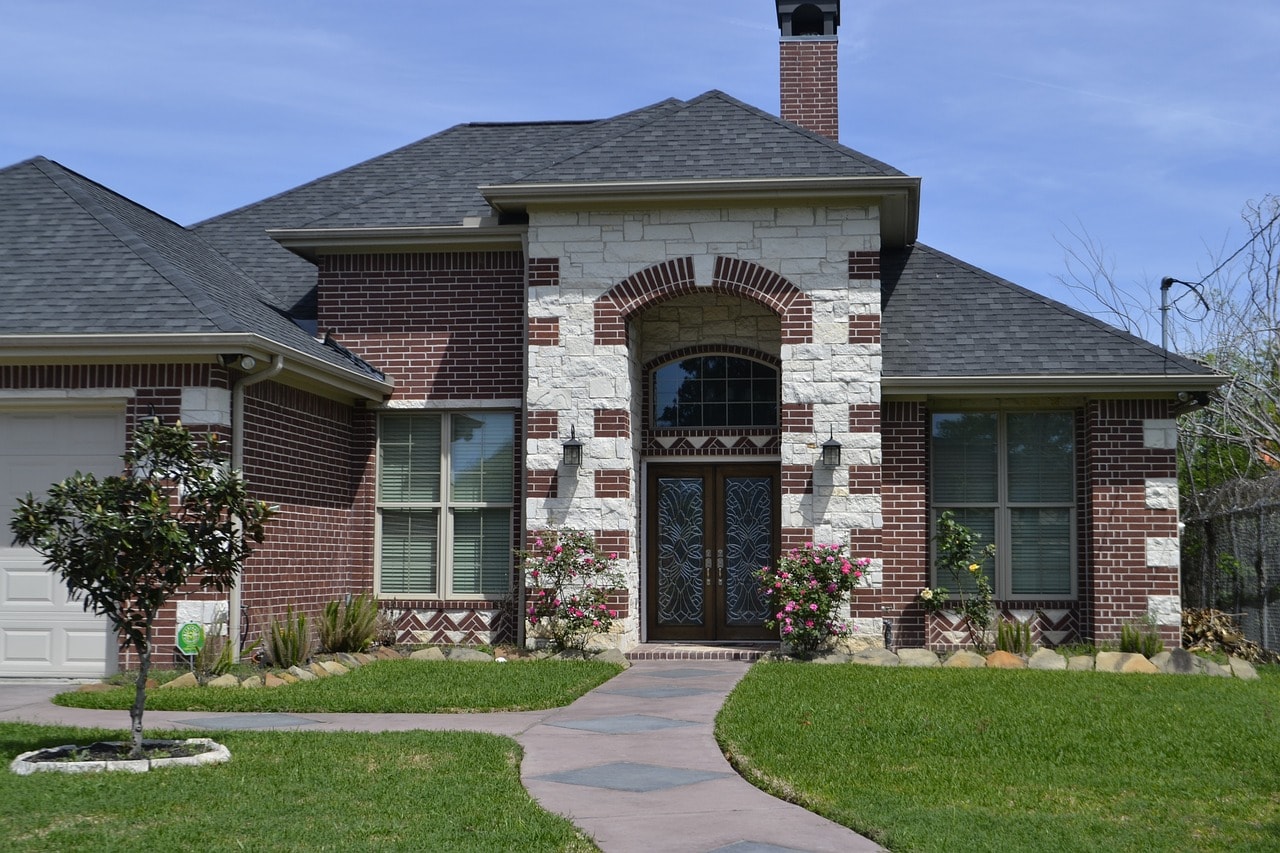If you are in the market for a home in AZ, you have probably asked yourself some version of “how much are closing costs in Arizona“.
This guide explores typical costs and the factors that influence them.
Homeownership is a goal for many individuals and families in the state of Arizona. Purchasing the home of your dreams is a complicated process and often one of the biggest investments you will ever make. Even in smaller real estate markets, the average purchase price of a home could be in the hundreds of thousands, making it difficult for many Americans to afford it upfront.
Completing a home sale, either as a buyer or a seller, can bring you closer to achieving your dreams, whether that means homeownership or moving on to the next property. Fortunately, there are ways to overcome the high home costs without using up all your savings.
Applying for a Mortgage Loan
One tool that makes homeownership possible for millions of buyers is a mortgage loan. Loans are borrowed money that lenders offer to buyers so that they can afford the home’s final sale price. In exchange for the borrowed money, the buyer agrees to pay back the amount over an agreed-upon period, plus interest payments.
To obtain a loan from a lender like a bank or credit union, there are several requirements that you must meet.
Credit Score
Your credit report indicates how reliable you are at paying back debt. The higher your score, the more likely you are to receive favorable loan terms. Conventional loans may only be granted to those with a credit score above 620, though other types of loan products are available for those with lower scores.
Down Payment
A down payment refers to the amount of money you can pay upfront for the home. The level of the down payment dictates the type of interest rate you can obtain and whether or not you will have to pay for mortgage insurance. The standard rule is a 20% down payment mitigates the need for insurance premiums.
Debt-to-Income Ratio
Your DTI is a number that compares how much debt you have to your monthly income. The lower this ratio, the more likely you are to receive a loan for your home purchase. Lenders want to know that you have the ability to cover your payments, and the DTI can be a good measurement of your ability to do so.

What Are Closing Costs?
Another number that is going to be important for a home transaction is the closing costs. Closing costs in Arizona refer to the charges that must be paid by either a buyer or seller when real estate transactions are completed. In many cases, Arizona closing costs can be wrapped up into the total cost of the mortgage. This will reduce the amount of money owed upfront at the time of purchase, but it will require more money for your monthly mortgage payments. Also, both the buyer and the seller will pay fees during the closing process.
Let’s take a look at some charges that may be included in closing costs.
Buyer Closing Costs in Arizona
Determining who pays certain closing costs in Arizona depends on the specific charge or fee being referenced.
Loan Origination Fees
Lenders will charge a loan origination fee to any borrower that is taking out a home loan in Arizona. Typically, this fee is a standard percentage of the total amount of the loan, usually between .5 and 1%. This fee is the cost of the lender handling the loan creation and management process, as well as opening an account for the loan.
Attorney Fees
Attorney fees are a part of the buyer’s closing costs. The rate can depend on the state and the specific lawyer that handles the documentation and contract signing during the real estate transaction.
Homeowner’s Insurance
This type of insurance is different from mortgage insurance. Many lenders will require the first year of homeowner’s insurance to be paid upfront as part of the closing costs. This helps protect the lender in the event of damage to your home during the first year of ownership.
Title Search and Title Insurance
A title search is conducted by title companies whenever someone buys a home to ensure that the property’s records are in order and there are no claims against the property or lein. A detailed title search is important for the transfer of ownership, so this fee for the title company is necessary.
An owner’s title insurance policy can protect you in the event of someone making a claim against the property. Title fraud is common, so having owner’s title insurance could make sure that the home stays yours after the transaction. This type of title insurance is optional.

APPRAISAL Fee
For every real estate transaction, an appraisal company will analyze the fair market value of a property. Appraisal fees cover the cost of this process, but they can be wrapped up into regular closing costs.
Flood Certification
Your property’s flood zone status can also affect your homeowner’s insurance policy, so paying a flood determination fee is common. This is a pretty low cost, often lower than $20, that is worth the cost if it prevents you from having to pay flood insurance.
Recording Fees
Recording fees are paid to the county records office for the recording of public land records. These charges are made to the state or local government to track the transfer of property between owners.
Transfer Tax
Transfer taxes are paid whenever a property switches ownership. A transfer tax is usually a percentage of the total price of the home, paid by the buyer. Sometimes, sellers may also cover part of this charge as part of the agreement.
Underwriting Fee
An underwriting fee refers to the cost of the lender researching your background to decide whether or not you will receive a loan. Essentially, the underwriting fee is a cost that pays for added security during a complex financial transaction.
Escrow Fee
Escrow fees are paid to an escrow company, title company, or attorney for their role as an independent party in managing the closing of the transaction. The cost of the escrow fee is dependent on the home’s purchase price.
Property Taxes
Annual property taxes are often divided between the buyer and the seller depending on when the transaction is completed. Sometimes, buyers may offer to cover more of the year’s property taxes to make their offer more attractive to the seller. Often, both parties will split these taxes right down to the date of closing to pay their share of the year. Generally, these taxes are paid as part of the closing costs by the buyer. If you are still uncertain, this article can help you understand property taxes at closing.
Inspection Fee
Most home buyers will end up paying for a home inspection to ensure that they are purchasing a property in good condition. The home inspection fee may be paid directly to the inspector, but it can also be included in closing costs in some circumstances. Waiving a termite inspection fee, or an inspection in general, could hurt your negotiating power for the home’s purchase price.
Seller Closing Costs in Arizona
Sellers usually end up paying a higher percentage of the home’s sale price in closing costs than the buyers. Let’s break down some of the fees and charges that are usually paid by sellers during a real estate transaction.
Realtor Fees
Realtor fees in the form of commissions are generally paid by the seller. After all, the real estate agent helped secure the sale for the buyer, which is a huge favor for the seller. These commission rates are usually a percentage of the home sale price. Additionally, you should know that the seller usually pays both the listing agent and the buyer’s agent with this closing cost.
Transfer Taxes
The seller will often pay a portion of the transfer fees along with the buyer, so make sure you take the transfer fee into account when calculating your total closing costs as a seller.
Escrow Fees
While the buyer will cover a portion of the escrow fees, so too will the seller. Many of the closing costs are shared costs between the buyer and the seller.
HOA Transfer Fee
If there are any payments owed to a homeowner’s association, then these fees will be paid by the seller. They are responsible for covering the transfer fee associated with the homeowner’s association.
Other Costs
There are other closing fees that sellers may be required to pay to close the transaction. Unfortunately, sellers have less flexibility when it comes to paying lower closing costs than buyers do.

How Much Are Closing Costs in Arizona?
When you are buying or selling a home in Arizona, there are many factors that will affect the final price of the property. The interest rates in the local market, the down payment amount, and even your credit score can play a role in what your payments look like for this transaction. Buyers and sellers will face different estimated closing costs that will affect how much they spend or make on the transaction.
Average Closing Costs for Buyers: 2-5%
Home buyers can expect to pay closing costs that are in the range of 2-5% of the agreed amount with the seller. While it is wise to include this number in your down payment, it is also possible to include many of these fees in the total loan amount, spreading the payments across your monthly premiums.
Average Closing Costs for Sellers: 6-10%
Seller closing costs in Arizona tend to be a little higher than buyer closing costs, usually between 6 and 10% of the purchase price of the home. A huge portion of seller closing costs in Arizona come from the real estate agent commission payments, which can make up 5 or 6% of the total price.
Other Factors that Affect Closing Costs
When you are in the market for an Arizona house, or you are hoping to sell your property, closing costs are affected by other external factors.
Type of Market
The status of the local real estate market will affect the home-buying process. A hot seller’s market occurs when housing demand exceeds supply. This creates an advantage for home sellers because they can maximize their profits on the sale. However, higher home prices also mean higher closing costs for Arizona sellers.
Conversely, a buyer’s market will benefit borrowers immensely. Home prices may fall as sellers desperately want to offload their properties, which means you can secure a better deal and pay less for your closing costs. Plus, the buyer’s agent is usually paid when the seller pays closing costs.
Federal Rates
The national average for interest rates will also affect the level of closing costs that you will pay. this national average is set by the Federal Reserve and impacts interest rates in all markets across the country, including in Arizona. In the last few years, the rates have been higher than usual, causing many buyers to hesitate in making purchases and forcing home sellers to reduce their prices to entice hesitant buyers. Volatile markets play a big role in home prices and closing costs, and the Federal Reserve is a major player in this arena.
In some cases, buyers would waive the home inspection to bring down the price of the home, which reduced the total closing cost but resulted in maintenance problems going undiscovered.
Time of Year
Even something as simplistic as the time of year can affect the price of a home and the associated closing costs for Arizona sellers and buyers. The closing date for your transaction could affect the home sale, as the buying season is more active during the spring and summer and less active in the winter.

Consult with District Lending About Closing Costs in Arizona
Navigating a home sale can be complicated for both home sellers and buyers. With so many factors to consider between the mortgage payoff, closing costs, and finding the right home in the first place, you could use a partner that understands all sides of the process.
Finding real estate brokers that will listen to your needs first is rare. At District Lending, we believe in hearing what your goals are before trying to advise you on the best course forward.
Choosing the Right Partners
Throughout the sale of a home, you will interact with many parties, from the real estate agent to the lawyer. You might search through many real estate websites to find the right people to work with during your home-buying or selling journey. If you ever want to know more about who you need to speak to throughout this process, District Lending can help. Don’t hesitate to take advantage of an agent-matching service to make sure you get connected with the right realtor.
Understanding Closing Costs
As you can see from the list above, there are a lot of closing costs that you may face, both as a buyer and a seller. Maybe you have questions about the recording fee, or unpaid taxes, or the fees associated with a real estate attorney. To give you peace of mind, we can talk through each closing cost that you may encounter during a real estate transaction in Arizona so you feel confident with your decisions.
Whether you are confused about what title insurance is or who is supposed to pay for taxes and the agent fees, we can provide the answers you are looking for.
Navigating Loan Products
People come from different walks of life. Maybe you are purchasing a very large property in Phoenix that requires a bigger loan than traditional mortgages. Perhaps you are a veteran or surviving spouse and want to know about specific loan products subsidized by the Department of Veterans Affairs. You might have a lower credit score and not be able to procure anything but an FHA loan.
No matter what your circumstances are, we want to help you acquire your next home in Arizona. District Lending’s various home loan programs make it possible for prospective buyers of all kinds to achieve their dreams of homeownership.
Contact District Lending Today
If you want to start the conversation about buying a home in Arizona, then contact District Lending for a free quote. You can also take a look at the mortgage calculator tool to play around with monthly payments, interest rates, and the down payment. This tool will make it easier for you to envision a payment plan for your mortgage.
Let’s talk today about closing costs in Arizona and how you can afford to buy or sell your next home in this beautiful state.






